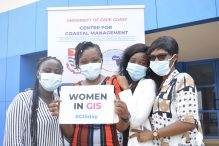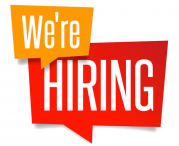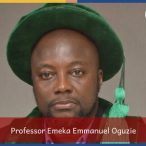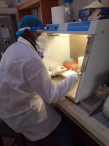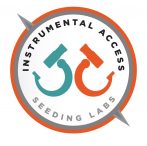Regional approaches to tackling development challenges
How ACE Impact Project is transforming Education and Research in Africa
The ACE Impact for Development Project is in its third year of implementation and has recorded notable successes in delivering high-quality training, competitive applied research, impactful industry/sector partnerships, mutually beneficial regional and international academic partnerships, and enhanced institutional governance and management of the participating universities.
As of November 2020, there were 10,817 masters and doctoral students enrolled across the 53 Centers, 24% of these being regional students. The number of female students across the centers reached 3,333, aligning with the project’s gender inclusion goal of at least 30% female students being trained at any point in time.
The results achieved by the centers are in harmony with the objective of improving the quality, quantity, and development impact of postgraduate education in participating universities through regional specialization and collaboration across West and Central Africa.
Eighty-two programmes being offered by the Centers are in the process of being internationally accredited, creating opportunities for increases in enrolment, as well as boosting the employability of graduates from the centers. Accreditation of programmes verifies if an institution meets or exceeds the minimum quality standards, making the courses and centers internationally competitive.
ACE Impact regional Approach
The ACE impact regional approach utilizes collaboration in training to meet the national level needs. For example, the centers hosted by the universities enrol students wishing to be trained in specific thematic areas from across the continent. In addition, the centers leverage the resident capacities in the region and beyond to support the training and supervision of the post-graduate students. Further to this, students are provided with internships and given the opportunity to complete them either in their home countries or regionally. This regional approach facilitates cross-fertilization of ideas and understanding of research problems from national, regional, and global perspectives.
Centers COVID-19 Response
The COVID-19 pandemic presented opportunities for centers to cooperate, sharing knowledge and best practices nationally, regionally, and internationally with various partners through their contributions and experiences towards controlling the spread of this pandemic. Professor Christian Happi is a leading researcher at the African Center of Excellence for Genomics of Infectious Diseases (ACEGID), Redeemer’s University, Nigeria. The center is in partnership with the Africa Centers for Disease Control and Prevention (Africa CDC), the Broad Institute of MIT and Harvard, and other research and public health partners, to implement a Sentinel project for an early warning system in Africa. The project combines genomics with advanced information technologies to transform infectious disease surveillance in real-time. An early warning that could save millions of lives.
Creating a Safe Learning Environment for Students
Along with attracting both national and regional students, meeting the required infrastructure standards, and ensuring the centers remain internationally competitive, creating safe learning spaces and environments is a top priority for ACE Impact. The project prioritizes the safety of all stakeholders involved, especially students, through the incorporation of sexual harassment policies and the development of grievance mechanisms systems. Each center of excellence, as part of the disbursements linked indicators, produced a comprehensive sexual harassment policy, as well as appointed a focal person/office responsible for monitoring and implementing the policy. The ACEs also engage students regularly on these policies and clarify to them how they can report any form of sexual harassment.
Additionally, the project appointed an expert in year 2020 to review all the anti-sexual harassment policies and provide feedback which the ACEs used to improve their policies where necessary. Webinars were also held by the Association of African Universities and the World Bank teams from January-March 2020 to raise awareness among the students and build capacities of all those involved.
Moving Forward
As the world adapts to our new digital and virtual reality, the regional approach has been applied to build the capacity of faculty with online teaching methods and technology. Capacity building workshops are being run virtually bringing in experts from Switzerland, Morocco and Senegal to facilitate the sessions. The ACE Impact faculty from the 11 countries converge virtually to participate.
Development challenges tackled by the ACEs
To contribute to job creation and poverty eradication, the centers conduct training programs for the surrounding communities as part of their outreach and community development. For example, the Centre for Dryland Agriculture (CDA) in Nigeria runs value chain training programs for youth and women from adjacent states. The practical and intensive training focuses on rice, fisheries, and poultry value chains for employment.
The COVID-19 pandemic spurred the Centers to respond to the health challenge posed by the pandemic. The Centers joined forces with their governments to contribute towards the control of the coronavirus. The ACEGID (African Centre of Excellence for Genomics of Infectious Diseases) and WACBIP (West African Centre for Cell Biology of Infectious Pathogens) have been exemplary in conducting the genome sequencing of SARS COV-2 in Nigeria and Ghana. In this important work WACCI and ACEGID worked collaboratively with their governments, national research centers, and other national universities to produce impactful results. The genome sequencing is critical for diagnostics and vaccine development. The data emanating from genome sequencing is important for policy actions and national as well as regional responses.
Other Centers designed hand-washing devices, manufactured face masks and sanitizers, designed screening tools, led COVID19-related community awareness trainings, developed disease surveillance systems, and finally opened up their campuses to be the venues for COVID19 testing.
Partnerships/ Community engagement
The Centers are developing strategic and significant partnerships as part of their regional approach to training, research, and capacity development. The Africa Centre of Excellence in Coastal Resilience (ACECoR) hosted by the University of Cape Coast is working closely with local and international partners in the areas of research and capacity building towards an accelerated development of the coasts of West Africa and beyond. ACECoR is partnering with Leibniz Centre for Tropical Marine Research (ZMT) at the University of Bremen, Germany to strengthen the scientific and technological community of practice with European partners from relevant marine disciplines for the co-design and co-production of knowledge that will engage with policymakers, businesses, industry, and other stakeholders within the coastal and marine sectors.

